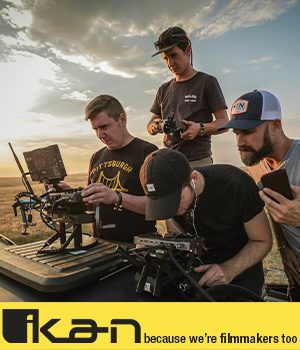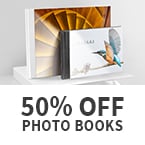- Forum
- General Discussion | Introductions | Off Topic Forum
- Photography General Discussion
- long exposure RAW shots
long exposure RAW shots
-
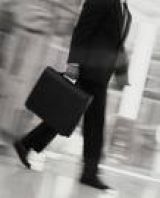 Topic Author
Topic Author
- david-hrg
- Newbie
-
- Canon EOS Rebel T2i
- Followers: 2
- Posts: 5
-
Points:
0
Post #14166
I want to start doing some night sky stuff and I'm worried that if i go to 30 minutes for star trails that I'll actually be about an hour all together before i can start a second shot.
Is this delay normal? Is is because I'm in RAW. Would a *.jpg format take the same amount of time?
-

- donleavy
- Newbie
-
- Nikon D7000
- Followers: 3
- Posts: 3
-
Points:
0
-

- webbman
- Newbie
-
- Nikon D3100
- Followers: 8
- Posts: 6
-
Points:
0
-

- Solstar
- Snapobsessed
-
- Canon 60D, Canon 30d
- Followers: 38
- Posts: 335
-
Points:
20
-
 Topic Author
Topic Author
- david-hrg
- Newbie
-
- Canon EOS Rebel T2i
- Followers: 2
- Posts: 5
-
Points:
0
-
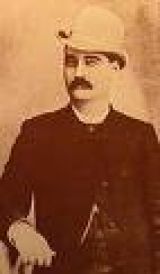
- masterman
- Newbie
-
- Nikon D7000
- Followers: 7
- Posts: 6
-
Points:
0
Post #21548
Just learn to shoot RAW is my advice. I think you'll find you like it in the long run.
-
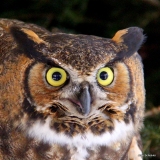
- Baydream
- Moderator
-
- Canoni/60D/70D/5DmkIII
- Followers: 388
- Posts: 11185
-
Points:
7280
Post #21552
This was a 20 sec exposure with a 50mm f/1.8 wide open to catch a meteor shower. My first attempt at that. I was able to shoot repeatedly since I never knew when they would appear. Next year, I will try longer exposures at a higher fstop. I problem then might be a meteor showing as a streak end-to-end. It will be a learning experience.
Shoot, learn and share. It will make you a better photographer.
fineartamerica.com/profiles/john-g-schickler.html?tab=artwork
-
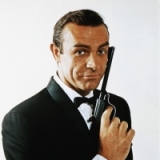
- Scotty
- Agent 007
- James Bond, PT mod.
- Followers: 1088
- Posts: 9876
-
Points:
14931
Post #21556
david-hrg wrote: Thanks for the input. As a followup questions, may I ask if you all shoot RAW primarily all the time. If not, is it because of the slow timing or something else?
I shoot RAW 100 percent of the time. The other 0 percent of the time, i'm usually not using my camera.
As everyone said, you probably have the long exposure in camera noise removal active.
When the last candle has been blown out
and the last glass of champagne has been drunk
All that you are left with are the memories and the images-David Cooke.
-

- richiepics
- New Kid On The Block
-
- Nikon D7000
- Followers: 8
- Posts: 37
-
Points:
0
Post #21662
donleavy wrote: One reason for the long timing could be if you have long exposure noise reduction on. If you do, that's why it takes so long. You should turn the noise reduction off and take care of it in post processing.
That is what I was going to say. Also I hope that was the only problem, otherwise there could be a serious problem that can not be fixed by turning something.
-
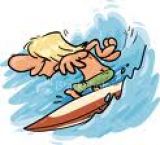
- bookman
- Newbie
-
- Canon 5D Mark II
- Followers: 17
- Posts: 6
-
Points:
0
-
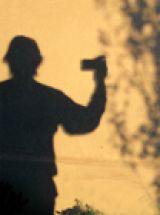
- t.thomas
- Newbie
-
- Nikon D300S
- Followers: 8
- Posts: 7
-
Points:
0
Post #24844
Iris - www.astrosurf.com/bull/us/iris/iris.htm
DSS - deepskystacker.free.fr/
- Forum
- General Discussion | Introductions | Off Topic Forum
- Photography General Discussion
- long exposure RAW shots
Latest Reviews
The Panasonic G9 II is a 25.2-megapixel micro four thirds camera with numerous features that make it punch out of its weight class, like 779 AF points, 5.8K video, and weather sealing.
The Fujifilm XT5 is a 40MP mirrorless camera capable of 6.2K video at 30p. With those specs, it’s an ideal choice for photographers needing a camera to pull double duty for imaging and video.
The Canon EOS R100 is an entry-level mirrorless camera introduced in 2023. But just because it’s an entry-level camera doesn’t mean it’s a bare-bones camera. Find out why in this review!
Nikon’s retro-looking Nikon Zfc is anything but retro. Under its classic body is a host of features and amenities that make it a worthwhile compact mirrorless camera for 2024.
Forum Top Posters
-
1TCav 6 posts
-
2Ruby Grace 4 posts
-
3Garbo 4 posts
-
4Kenta 3 posts
-
5Street Shark 3 posts
-
6Moe 2 posts
-
7Sassy Girl 2 posts
-
8CharleyL 2 posts
-
9Colorado Mike 2 posts
-
10Chester Foster 2 posts
Latest Articles
The Panasonic G9 II is a 25.2-megapixel micro four thirds camera with numerous features that make it punch out of its weight class, like 779 AF points, 5.8K video, and weather sealing.
Cinematic photography is an interesting genre that combines photographic and videographic skills along with effective storytelling techniques. The result? Highly impactful images!
Newborn photography requires skill, the right gear, and a lot of patience. This beginner’s guide discusses critical topics that will help you be more prepared for before, during, and after the shoot.
To fill the frame means to expand the footprint of the subject in your shot. Get in close, zoom in, crop the image, or use other techniques to bring the subject to the forefront.
With these simple yet effective beginner photography tips, you can avoid some of the common mistakes beginners make and get improved results with your images.
Urban photography is a genre showcasing features in urban settings. You can photograph people, architecture, mass transit, and many other subjects. Learn how to do so in this guide!
The Nikon D850 might be an older DSLR, but it was ahead of its time when it debuted in 2017. That means it still has plenty of firepower to compete with today’s powerful mirrorless cameras.
The best beginner camera isn’t the same for everyone. That means having choice is of the utmost importance. In this guide, explore five excellent beginner camera options for 2024 and beyond.













